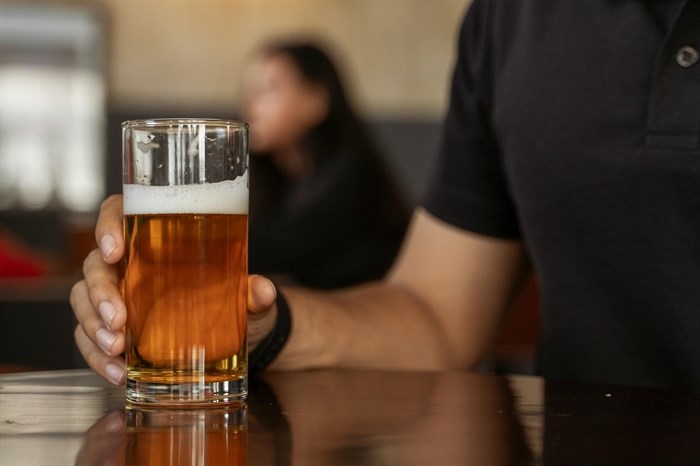BC govt defends underage liquor 'sting ops' while industry calls for leeway

A BC restaurant and bar industry association is taking aim at the provincial government's archaic liquor enforcement policies, which see businesses stung with steep fines for making simple mistakes.
BC Restaurant and Foodservices Association president Ian Tostenson says he's pleading for the government to listen and work with the industry after seeing too many reputable businesses fall foul of BC liquor inspector sting operations and handed $7,000 fines.
"In the majority of these cases... it's an error," Tostenson told iNFOnews.ca. "$7,000 is just about enough to put most businesses under."
Tostenson's beef is with the BC Liquor and Cannabis Regulation Branch's minors as agents program.
The program sees liquor inspectors accompany agents under 19 years old into licensed premises to try to buy alcohol. Businesses that sell the teen alcohol are then issued a minimum $7,000 to $11,000 fine or face a seven to 11-day closure. The fine then jumps to $15,000 if it's a second offence.
"We're not saying abandon ship here. We have a social responsibility, irrespective of their regulations," Tostenson said.
The issue is that the province has no leeway on the fine.
Tostenson said the owner of am 50-year-old Lower Mainland restaurant was recently caught in a sting operation and inadvertently sold a teen a beer.
The long-standing server had just gotten news their child had been taken to hospital and was "completely off center" when they made the mistake.
Regardless, the Liquor Branch offered a $7,000 fine or to close for eight days. The owner couldn't afford the fine so they shut up shop with a mandatory notice hanging in the window saying they'd had to close for serving a minor.
"That doesn't make any sense to me," he said. "It's so deliberate by the liquor licensing branch, when we're trying to find a way in an industry right now that's just suffering."
The Liquor Branch has no grace for a first mistake and the fact the restaurant that's been infraction-free for decades and sells very little alcohol is not taken into consideration.
"I think that's just mean-spirited," Tostenson said. "We're always going to make mistakes. I don't care what we do. There's always going to be an error."
Businesses can dispute fines and if they can prove they did their "due diligence," may have it wiped.
The Kelowna Curling Club was recently successful in fighting a $7,000 fine for serving a minor, but most businesses lose if they appeal.
"Most business owners can't afford the time or money to go to (the Tribunal),” he said.
According to the Ministry of Public Safety and Solicitor General, so far this year, liquor inspectors have carried out 632 underage sting operations, with 113 contraventions.
Last year, only 41 businesses disputed their liquor infractions, which weren't all selling to minors, and so far this year, 20 have done so.
The Ministry takes issue with the term "sting operation," saying the inspections are not "covert or surprise tactics" and that licencees are well aware the programs exist.
Tostenson isn't against the approach per se, but the heavy-handed approach leaves no leeway for error. He says it needs to be based on common sense.
"We made a mistake and stuff. No fine. If it's a second offence, there's a fine," he said.
And the cases he sees are never about bars' endless serving teens.
The province stands by the program, saying it's a "preventive, educational, and evidence-based tool" that helps maintain public confidence.
"The minors as agents program plays a critical role in protecting public safety by ensuring liquor is not sold to minors, which is illegal," the Ministry said.
While the total cost of the program isn't clear, the Ministry says it has a "modest" $30,000 yearly budget.
However, that just covers the $20 an hour a minor is paid for a six- to eight-hour shift where they will carry out 8 to 12 inspections. It doesn't include the cost of the liquor inspectors who accompany them or the time it takes to complete all the paperwork.
If a licensee fights the fine and the case goes to the Tribunal, there’s more expense.
The Ministry said businesses have an overall compliance rate of 82%, but the program still pulled in $406,000 in monetary penalties and had 588 days of licence suspensions.
Tostenson said that businesses put a lot of money and effort into getting liquor licences and take it very seriously.
“I think it's an insult when all of a sudden they go, ‘oh, sorry, you're not taking it seriously enough', or 'sorry, you made a mistake,’” he said.
Tostenson said a recent meeting with General Manager of Liquor and Cannabis Regulation Branch, David Hume, didn’t offer any solutions and the Branch wasn’t receptive to change.
So while young Canadians drink less alcohol than the generations before them, the province still seems intent on taking an iron fist approach to the businesses that slip up and accidentally sell an underage teenager a boozy beverage.
To contact a reporter for this story, email Ben Bulmer or call (250) 309-5230 or email the editor. You can also submit photos, videos or news tips to the newsroom and be entered to win a monthly prize draw.
We welcome your comments and opinions on our stories but play nice. We won't censor or delete comments unless they contain off-topic statements or links, unnecessary vulgarity, false facts, spam or obviously fake profiles. If you have any concerns about what you see in comments, email the editor in the link above. SUBSCRIBE to our awesome newsletter here.


